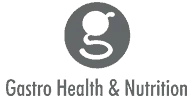Gastroenterologist in Katy, TX
NASH Treatment
Non-Alcoholic SteatoHepatitis, or NASH, is the most severe form of Non-Alcoholic Fatty Liver Disease (NAFLD). This is a condition where excess fat is stored in the liver cells, which makes it harder for the liver to function. The build-up of fatty cells in this case is not correlated with alcohol consumption.

What is NASH?
NASH is a form of NAFLD, in which you have hepatitis, that makes your liver become inflamed. This can cause irreversible liver damage such as fibrosis, or scarring of the liver. Most people go many years with mild symptoms before being diagnosed with NASH. The longer patients go unaware of this condition, the more likely it is to progress to liver cancer or liver failure.

What Are The Symptoms?
Called the silent liver disease for a reason, early stages of NASH can produce no symptoms and many people don’t realize they have it. In addition, the indicators are nonspecific to NASH, which makes it difficult to diagnose. As it progresses, cirrhosis will begin developing.
-
Intense Itching
-
Fatigue
-
Jaundice
-
A swollen belly
Causes and Risk Factors
Doctors and researchers don’t know the exact cause of NAFLD or NASH, but it is most common with people who are obese, have diabetes or pre-diabetes.
Diagnosis of NASH
NASH is usually discovered during a routine blood test or a screening for a different medical condition. This is usually when your doctor will see high levels of liver enzymes, or notice your abdomen looks enlarged during an ultrasound, which indicates you may have fatty liver disease.
Your doctor will then run a series of tests that include a physical to determine your BMI, blood tests, liver biopsy, and/or imagine tests. These tests will give your doctor a definitive answer if you have fatty liver disease or not, and can start figuring out appropriate treatments for you.
NASH Treatment Options
The first thing your doctor is most likely going to suggest is to start losing weight. Since being overweight is one of the main indicators of NASH, it makes sense that losing weight would help combat it and reduce the fat in your liver.
If your doctor thinks it is a direct cause of diabetes, they will have you start monitoring your blood sugar and taking the right medications.
In addition, your doctor will probably suggest to stop drinking alcohol, be cautious of dietary supplements and ask your provider before taking any supplements. This will help protect your liver and prevent any additional damage.
Without proper and quick treatment, NASH can progress very quickly and into life-threatening stages. With more awareness and education about NASH, hopefully diagnosis can be discovered early on and treatments can become more precise.
